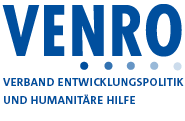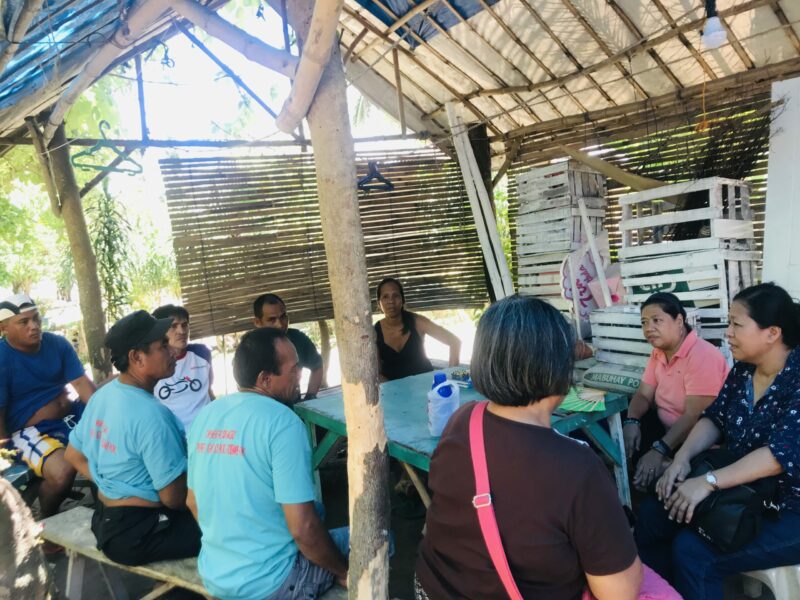Partnerships between local and international NGOs can be of great value for both organisations. As each partner is expecting something out of this collaboration, it is important to plan ahead. Analeh Patindol from Karl-Kübel-Stiftung Philippines explains what needs to be taken into account to generate a fruitful cooperation for both sides from the beginning on. She has taken part in a VENRO-seminar on “Potential Partner Assessment and Selection”. This article is part of our blog series on equitable partnerships.
Many of the local non-government organisations enter partnerships with international NGO (INGO) either for technical assistance or to access funding support. However, the path to cooperation is not a bed of roses: It starts with the initial contact building and progresses to an exploratory meeting towards in-depth assessment through the submission of legal documents, project and financial reports in order to establish a track record of implementing projects and field visits. A good selection process allows both organisations an opportunity to put forward the cooperation perspective in an open discussion without giving false hope for a partnership.
Elements for generating possibility and opportunity
A common vision is a good start in the partnering process as it offers an opportunity to reflect on the value of the partnership from the organisations’ perspective. The use of objective criteria and clear procedures related to the partner assessment promotes transparency and prevents biases. Equal opportunity requires a level playing field for any organisation regardless of whether it has a German connection or none – because the main point is that no one is unfairly advantaged before the selection process even starts. Moreover, competence in implementing a project is an important factor to consider in selecting a partner.
Each organisation is expecting something out of the collaboration. Thus, it is imperative to set clear the intentions and what the partnership will bring. The organisations involved have the responsibility to accomplish the undertaking with integrity and commitment to deliver what has been expected. Engagement in itself is a risk but making explicit conversation as an entry step in the partnership may ward off potential organisations to partner. As the partnership grows, the benefits of risk-sharing also become prevalent.
Collaborations with aligned values can work together to put forward the sharing of resources, access to funding opportunities, strengthening programmes in some ways, and even improve leadership skills. It is inspiring to collaborate with an organisation that shares the same purpose as the journey becomes collective towards a common goal.
Further, collaborative planning is an important approach to define the common understanding of the process, identifying the type of engagement and levelling-off of expectations. As negotiations continue, each party identifies potential sources to build on the comparative advantages and complement each other’s contributions to build on mutually beneficial relationships.
Periodic review of partnership is the way forward
Over time, there is a danger that partnership is defined on the years of cooperation and not on the quality of the engagement. This sometimes could be detrimental as details are sidelined and policy-implementation gaps are tolerated in the name of the partnership. Thus, a Strategy Review Meeting between the local project holder and the INGO can help identify subsequent adoption of opportunities for improvement, pinpoint winning and struggling areas within, improving transparency and accountability and helping each other to work collaboratively.
It is a reality that organisations are evolving and change is inevitable, the only roadblock is timing. Most of the time, both organisations are more focused on the delivery of targets, achieving set indicators and on compliying with guidelines – but sometimes miss an important piece of the puzzle which is relationship building. A healthy relationship comes together in a common platform to exchange ideas, discuss possible solutions and strategies and share responsibilities. With regular feedbacking, it becomes a good opportunity for both the international organisation and the local partner to evaluate the partnerships in a two-pronged approach – because in the true essence of partnership, each party contributes to the cooperative ventures and receives benefit from it.
This article is part of a blog series on equitable partnerships in which colleagues from local, national and international organisations share their views on different perspectives on partnership and localisation.
| Analeh Patindol | Karl-Kübel-Stiftung Philippines |
 Mitgliederbereich
Mitgliederbereich
